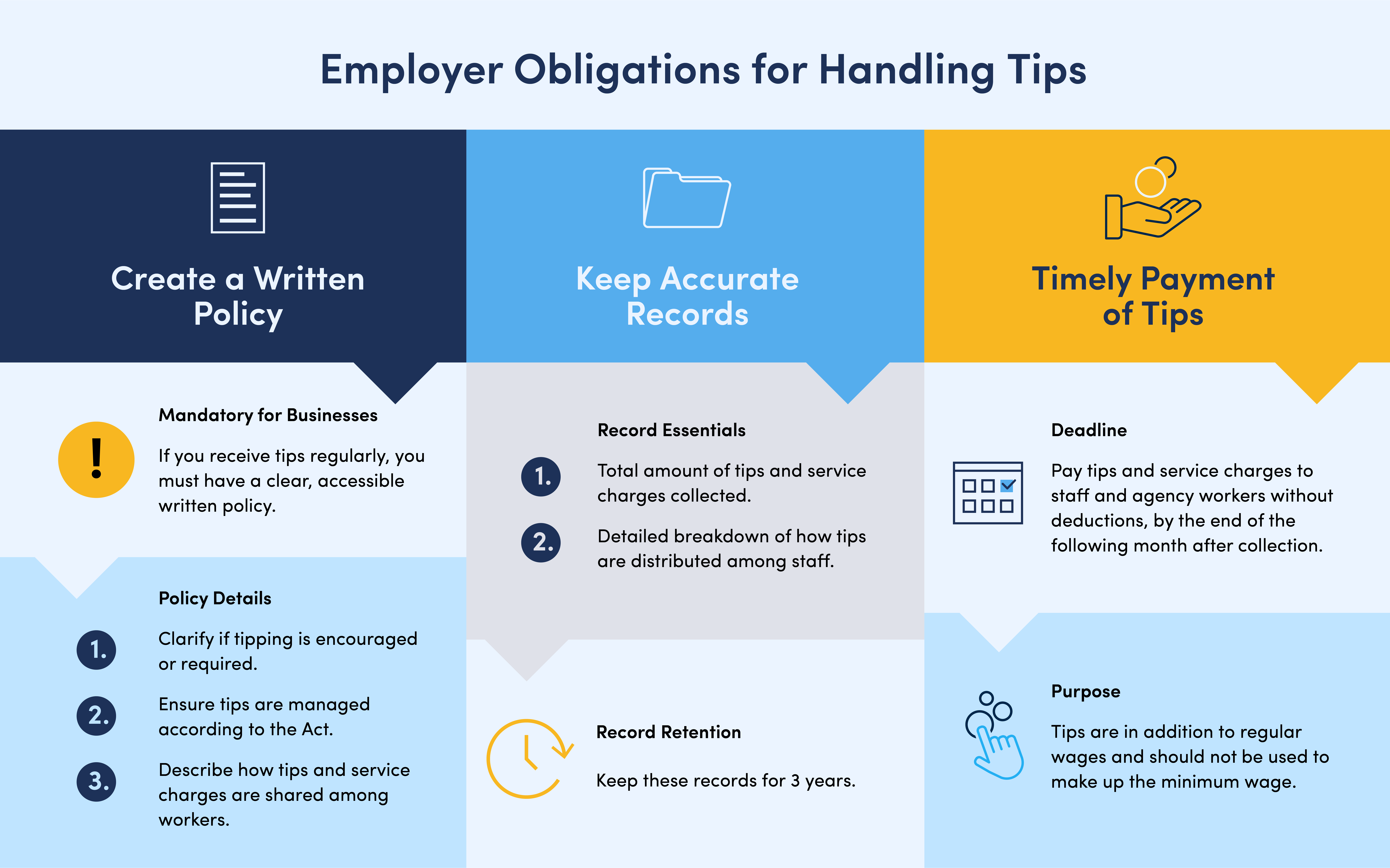

Workers and staff will get service charge in restaurants from 1st October 2024 with the introduction of the Employment (Allocation of Tips) Act 2023 which details the rights of workers and the obligations of employers. Restaurants are required to follow these regulations, which aim to ensure that all hospitality staff receive their rightful earnings when customers leave tips for staff.
The Act aims to bring transparency on who receives the service charge in restaurants and improve fairness to workers that they receive tips or service charges in recognition of their good service.

The law is outlined in the Employment (Allocation of Tips) Act 2023 and sets out how employers must deal with tips, gratuities and service charges in the UK. They refer to tips, gratuities or service charges where the employer has significant influence or control over.
Before the Employment (Allocation of Tips) Act 2023, employers of the restaurant could retain any amount of non-cash tips paid by customers. This included service charge that was paid by customers via credit cards or other forms of card payments.
Some restaurant owners may voluntarily distribute tips and service charges to its employees to reward their staff for good service provided to customers and improve staff morale.
From 1 October 2024:
The Act requires that employers fairly distribute the total amount of tips, gratuities, and service charge among the employees at the business location where these payments were made.
Tips or service charges paid by customers at a particular restaurant will be shared by workers within that restaurant and not with a different restaurant of the same employer. This ensures that tips and service charge generated at one branch or location under the same ownership of the restaurant isn’t distributed amongst other sites which may generate more or less tips.
They are to be allocated fairly to workers without any deductions unless for statutory deductions for tax.
There are many ways tips can be distributed fairly and it also depends on the unique situation at each restaurant.
Some ways tips can be fairly distributed by:
The Act also allows for the non customer facing staff like kitchen staff to receive tips and service charge if they contribute to service and dining experience of the restaurant and not have tips solely distributed for service staff.
For mandatory or compulsory service charges or tips and gratuities described as something else, the act dictates that this will be treated in the same way.
This is particularly important if the employer describes optional service charge or mandatory service charges as something else e.g. additional charge for waiting tables, service cost or service tax.
The Act does not make a distinction between whether or not a service charge is mandatory or
discretionary.
Provided this is done fairly, employers can allocate tips from non-public places of businesses e.g. from a different type of establishment like a main headquarters can share with one or more of the employer’s public places of business.
Public places of businesses are where there are mainly face-to-face interactions with customers
e.g. restaurants.
When service personnel are hired through agencies, the distribution of service charge and
gratuities has been made more transparent.
The Bill outlines that the agency worker is to be treated as if they were a worker of the restaurant. This requires the employer or restaurant to fairly allocate service charges and tips in the same manner and fairness as it would its employees they have hired directly.
The one key difference is that all tips, gratuities and service charges can be paid directly to the agency worker or directly to the agent who in turn must not make any deductions from the amount payable other than statutory deductions like tax. The agent is required to allocate the tips to agency workers no later than by the end of the following month in which they were paid by the customer.
In the UK, restaurants and other service industries there are certain requirements for employers regarding service charges. These include the establishment of clear written policies and the maintenance of precise records.

Businesses that receive tips on more than an occasional basis must create a written policy on
dealing with tips and service charges. This is to be made available to their workers. This tips
policy should detail:
They are also obliged to maintain accurate records of service charges & tips collected at that place of business and their subsequent distribution. The records must include:
The business must retain these records for 3 years under the new legislation instead 6 years previously.
Maintaining these records not only ensures transparency but is also crucial for compliance with tax regulations.
Businesses must pay restaurant staff and agency workers 100% of the tip without deductions no later than the end of the following calendar month in which the tip was received.
This payment of tip and service charge is in addition to the staff’s wage to ensure income generated from tips and service charge are not used to supplement restaurant staff wages. This is especially important for workers who rely on tips to supplement their basic wage which may be at the national minimum wage.
Restaurant staff in the UK have specific entitlements related to service charges, and there are established procedures for addressing grievances concerning service charge distribution. The rights also extend to all hospitality workers and not just restaurant staff.

Employees have the right to request from their employer records for a specified period, related to the business location where they worked. The records should include:
(a) The total amount of tips, gratuities, and service charges collected at the place of business.
(b) Details of how these amounts were distributed, specifically:
The employer must provide the employee with the records within four weeks from the date of request.
Workers cannot make more than one request for their tipping records every three month period.
When a dispute arises regarding the distribution of service charges:

This section addresses common queries regarding the service charge in UK restaurants, distinguishing it from tips, discussing discretion on its payment, the inclination to tip in addition to service charges, and the typical amount added to bills.
